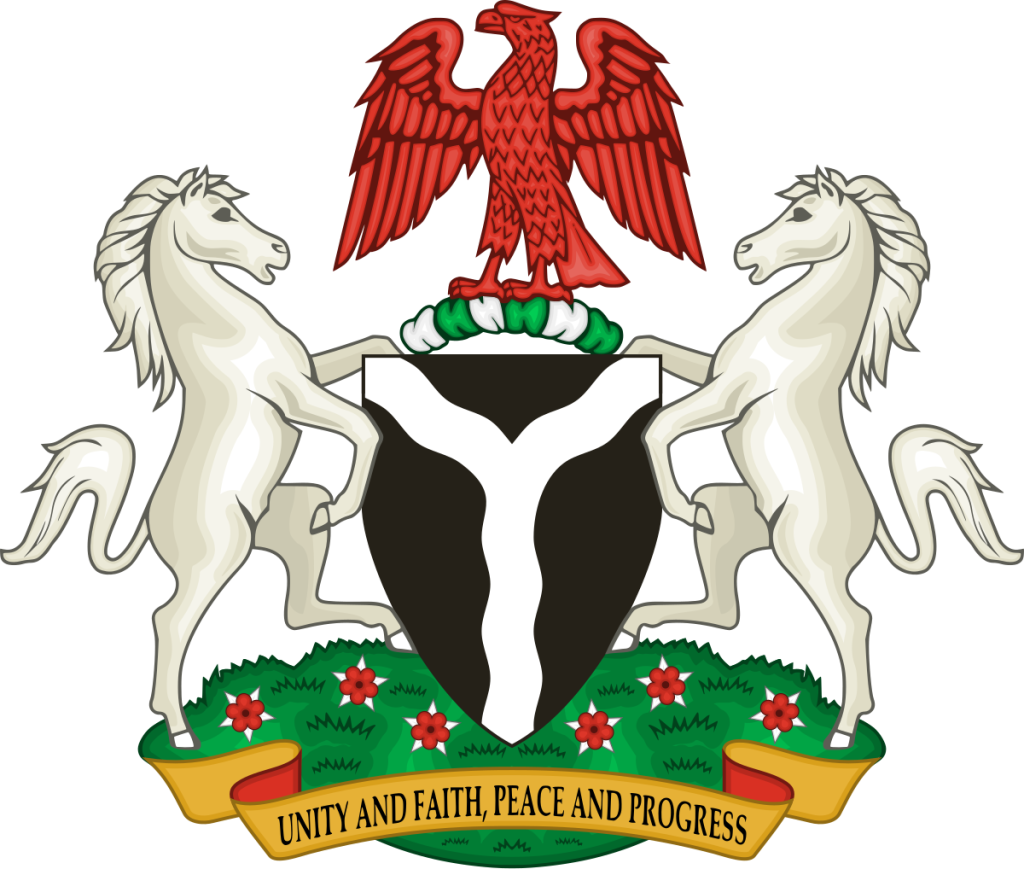
Nigeria, Africa’s most populous nation, has two significant national symbols that represent its identity, values, and aspirations—the Nigerian flag and the Coat of Arms. These symbols reflect the country’s rich heritage, unity, and commitment to progress.
The Nigerian Flag
The Nigerian flag is a simple yet powerful representation of the country’s ideals. It consists of three vertical stripes in green, white, and green.

Design and Meaning
- Green: Represents the country’s rich natural resources and agricultural wealth.
- White: Symbolizes peace and unity among Nigeria’s diverse ethnic groups.
The flag was designed by Michael Taiwo Akinkunmi, a student from Ibadan, in 1959, and was officially adopted on October 1, 1960, when Nigeria gained independence from Britain. His original design included a red sun in the white section, but it was later removed to keep the flag simple.
The Nigerian flag is flown with pride in government buildings, schools, and international events, signifying national sovereignty and identity.
The Nigerian Coat of Arms
The Nigerian Coat of Arms is a more detailed symbol, rich in meaning and history. It was adopted in 1975 and reflects Nigeria’s unity, strength, and cultural heritage.

Elements and Their Meanings
- The Black Shield – Represents Nigeria’s fertile land.
- The Wavy White “Y” Shape (Pall Wavy) – Symbolizes the meeting of the Niger and Benue Rivers, the two major rivers in Nigeria.
- The Two Supporting Horses (Chargers) – Represent dignity and strength.
- The Eagle – A symbol of pride and strength, showing Nigeria’s sovereignty.
- The Green and White Wreath – Represents Nigeria’s rich agricultural heritage, reflecting the national flag’s colors.
- The Red Flowers (Costus Spectabilis) – Nigeria’s national flower, symbolizing the beauty and rich diversity of the nation because they can be found in most states.
- The Motto: “Unity and Faith, Peace and Progress” – Encourages national unity, faith in the country, peaceful coexistence, and development.
Significance of the Nigerian Coat of Arms
The Coat of Arms serves as an official emblem for the Nigerian government. It appears on documents, currency, and official seals, reinforcing national pride and the country’s sovereignty.
Summary
The Nigerian flag and Coat of Arms are more than just symbols—they represent the country’s history, culture, and vision for the future. You will learn about many of the fun and interesting places, as well as cultural festivals in the book Tourist Attractions in Nigeria. While the flag reminds Nigerians of their agricultural wealth and peaceful aspirations, the Coat of Arms highlights their strength, unity, and national pride. These symbols continue to inspire patriotism and a sense of belonging among Nigerians at home and abroad.
